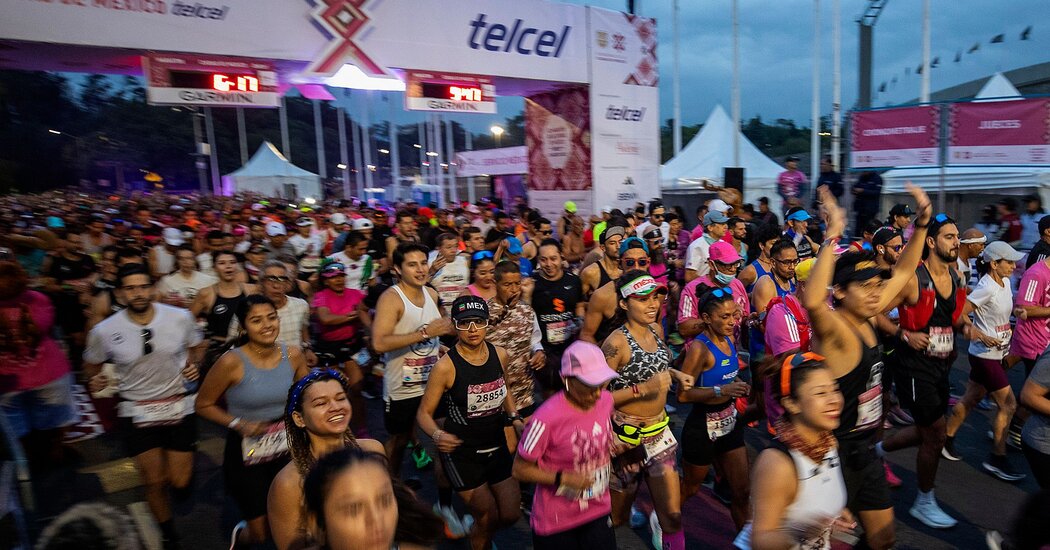
The organizers of the Mexico City Marathon said they were investigating runners of the race last month for “unsportsmanlike” attitudes, after reports of people cheating emerged online.
The Sports Institute of Mexico City, which organized the marathon, said in a statement last week that it would “proceed to identify those cases in which the participants” of the 40th Mexico City Marathon “would have demonstrated an unsportsmanlike attitude during the event and will invalidate their recorded times.”
The institute did not immediately respond to questions about how many people had been disqualified from the race or why they had been disqualified.
There is precedent for a large number of disqualifications at the marathon. Organizers said in 2018 that 3,090 runners were disqualified, mostly for course cutting, or crossing the finish line without running the entire distance. In 2017, they disqualified 5,806 people, most of whom had engaged in course cutting.
Accusations of cheating in Mexican races are also documented in Facebook pages including Los CazaTramposos Del Maratón, or “The marathon cheater hunters,” and Ya se cansaron?, “Are you tired yet?,” which in recent weeks have posted several claims of cheating by runners in the Mexico City Marathon.
Marca, a sports newspaper based in Spain, reported that thousands of people had been disqualified from the race after using public transportation and cars to shorten the distance. That estimate was not confirmed by the race organizers.
The Mexico City Marathon is one of 38 races this year to have a World Athletics Gold Label, a classification that indicates it has met strict requirements of course design and race management. The winner of the marathon receives 550,000 pesos, or more than $31,000. This year’s marathon was on Aug. 27.
The statement from the Sports Institute of Mexico City said, in part, that the marathon “not only represents an important celebration for all the people of the capital, but it is also an opportunity to reaffirm the transcendental values of the sport,” which includes bolstering “the essence of sports competition and its positive impact in our society.”
“We thank all the participants, spectators and collaborators for being part of this event that uplifts not only disciplined physical activity, but also the values that shape an exemplary sporting community,” the statement said.
Questions about cheating at this year’s marathon again have brought attention to one of the best known marathon scandals in Mexico.
Roberto Madrazo, a former presidential candidate, was disqualified from the Berlin Marathon in 2007 for cheating. He had used his marathon-running as a metaphor for determination and steadiness in campaign advertisements. A sports photographer raised questions about Madrazo’s run after he was seen at the finish line wearing a jacket, a cap and long tights while most runners were wearing sweat-soaked T-shirts and shorts.
Madrazo said last week in a post on X, the social media platform formerly known as Twitter, that he had stopped running the 2007 marathon early because of an injury and went to the finisher’s line to collect his participant’s medal because it was given to all runners.
He also responded to this year’s Mexico City marathon debacle, saying that the 33 percent of people who only partially completed the race were not cheating.